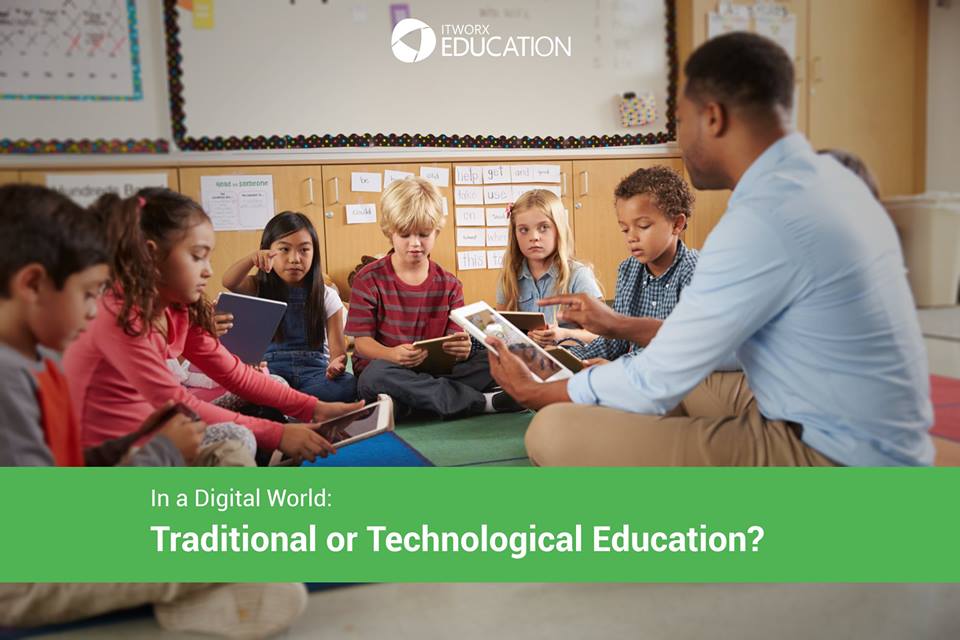
In a Digital World: Traditional or Technological Education?
One thing that we all agree on is that learning and education are not limited to our years of studying in schools and colleges. Today’s dynamic world requires continuous development and progress in one’s knowledge and capacity to learn. When we understand the value of self-development and the need for ongoing growth, we face an immensely perplexing question: How can we ask tomorrow’s citizens to progress and continuously learn without arming them with the proper tools and know-how of effective ongoing learning?
With technology being the driver of almost every activity we do from little children to grownups, we need to ask ourselves these important questions:
Let’s begin with two key questions: what is traditional education? And why should we question its ability to offer students with the needed know-how they need to cope with our modern technology-driven world?
According to Julie Alice Huson, Dean of Students at BASIS Independent School, Fremont, California, USA, “traditional education is defined as teacher-centered delivery of instruction to classes of students who are the receivers of information”1. This means that teachers guide their students to certain pieces of information, which in other words can be described as spoon-feeding the information to the students. On the other hand, the modern world teaching requires educators to become more of facilitators of learning.
This “facilitation” of learning can be achieved through two different, but coherent, strategies:
By the application of these two strategies, the learning/education process becomes less teacher-centered and more student-focused.
This brings us to a particularly important question: how can the use of technology in education aid in shifting the course of education to become more focused on students?
Technological education is simply using technology in the classroom to promote the interaction between educators and learners and amongst learners themselves. Its proper use will also aid in enriching the learning process and in giving the learners hands-on experience that definitely will be carried on later in their lives.
With children as young as 2 years of age getting more involved with interactive technology, using technology in the classroom seems to be a logical choice. It’s a chance for teachers and educators to speak the same language as their students.
The use of technology in education motivates learners and improves their learning skills; they feel more in control of what they learn and how they learn, adjusting the process to fit their learning speed and educational level. With teachers/educators there to coach and guide, students’ needs inside and outside of the classroom can be fulfilled. In addition, a more collaborative learning experience will be created, where students can research information from up-to-date resources and share them with their peers and teachers. This, in itself, will supplement the learning environment. Most importantly, in today’s digital world, using technology in the classroom prepares the students for their technologically operated work life, in which digital literacy proves to be an important life skill.
We’ll be talking more about this topic in our following articles. If you’re interested to learn more make sure to follow our page!
If you wish to know how we can help you transform your learning system to better match today’s digital world and benefit all stakeholders involved in your organization contact us here.
1Julie Alice Huson, The Advantages of Traditional Schools, Education Section, The Seattle Post-Intelligencer Newspaper: https://education.seattlepi.com/advantages-traditional-schools-2140.html